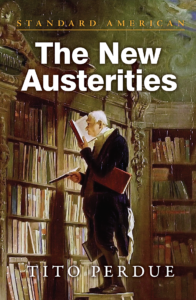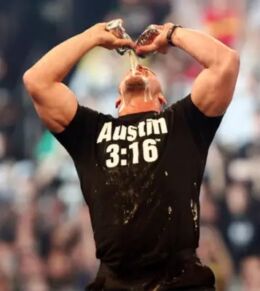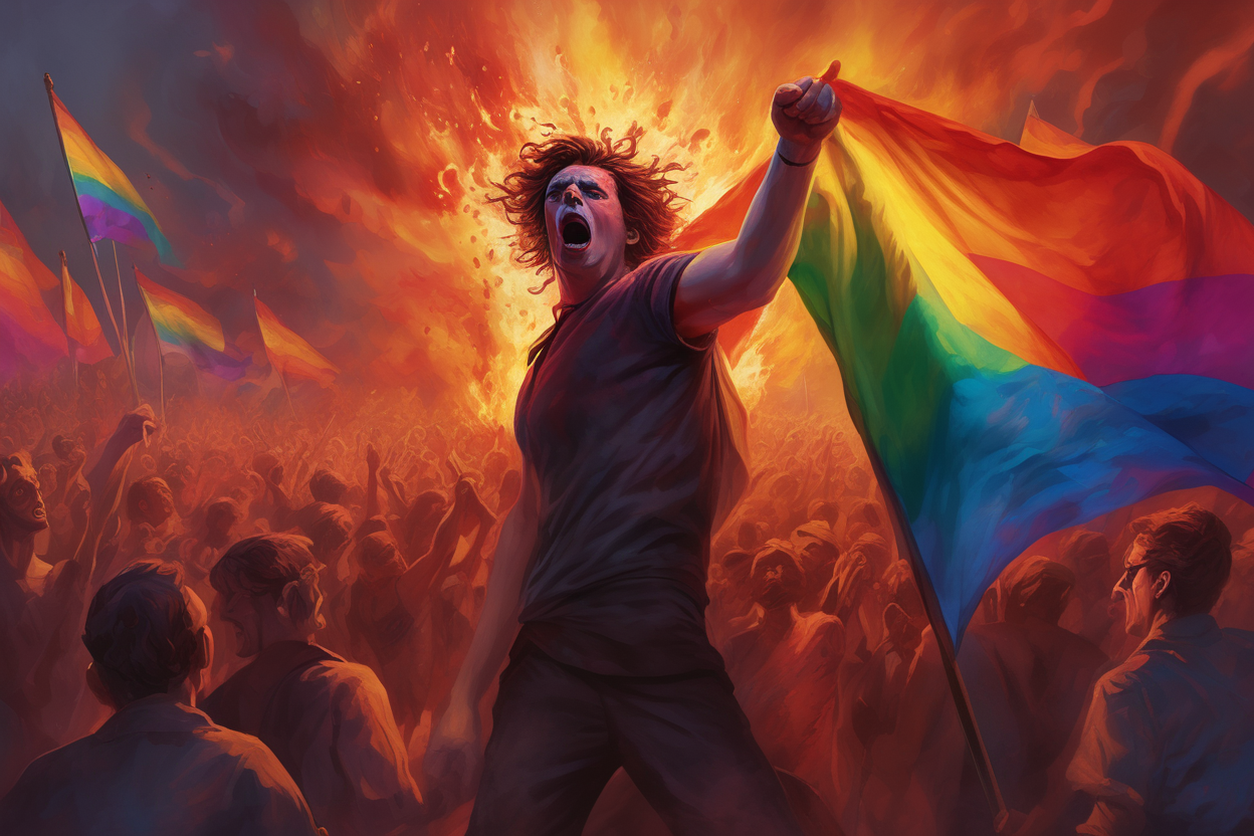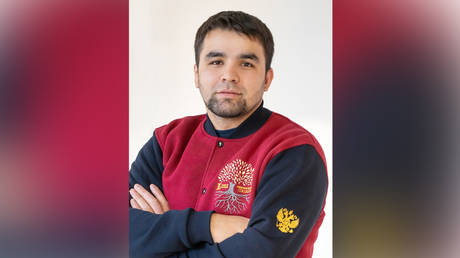On Professional Wrestling
1,413 words
I have mixed feelings about professional wrestling. Allow me to offer my history with pro wrestling before I get into that, however. The story begins in the early 1980s.
John Stossel made an exposé for 20/20 in 1984 aimed at proving that pro wrestling was fake. I remember watching it when it first aired. You might think it was a ridiculous premise for an exposé. Doesn’t everyone already know that it’s fake? Didn’t they always? You’d be surprised. As late as the 1980s, there were still a great number of people who believed that professional wrestling was real, and it was part of the wrestler’s code to never admit that it’s fake.
Stossel interviewed an ex-wrestler who explained all their tricks, however, including the fact that certain things which look as if they hurt don’t actually hurt at all. For example, one of the main arguments for pro wrestling’s authenticity was the blood. If no one is actually being hurt, then how do wrestlers end up as such bloody messes by the end of a match? The ex-wrestler explained that they keep hidden razor blades and cut themselves when necessary. The guy then proceeded to demonstrate on camera by cutting his forehead with a razor blade. 40 years later, I still remember it.
The most famous part of Stossel’s exposé was when he said to wrestler David Shultz that wrestling is fake. Schultz then smacked Stossel to the ground and asked, “Does that feel fake?”

For my part, I always knew that pro wrestling was fake. As I mentioned in a previous essay, future Hall of Fame wrestler Harley Race was a family friend when I was a kid. Harley’s son went to school with my brother, and they were on the same wrestling team. Harley would sometimes show up to practices, and everyone knew him. He was a big deal on the regional wrestling scene. On one occasion, he brought me and my brothers backstage before one of his cage matches with his arch-rival, Ric Flair. Everyone asked him all the time if pro wrestling is fake, and he would give a non-committal answer about how “it’s a technical sport” or something like that. I knew who Harley Race was before I knew what pro wrestling was, and because of that I knew that wrestlers are just regular folks doing a job.
A digression: I had one other experience with a famous professional wrestler. In the late 1990s, the Honkytonk Man came to a restaurant where I worked. Honkytonk Man had been a wrestler during the 1980s boom, and his gimmick was that he was a wrestling Elvis impersonator. He was working the independent circuit at that time. Honkytonk Man ordered the most expensive thing on the menu, ate the whole thing, and then complained to the manager that he shouldn’t have to pay for it — and our manager complied. Another one of the employees was a big wrestling fan, and he said that according to the Internet, Honkytonk Man does that everywhere he goes. End digression.
When I first saw that legendary smackdown by David Schultz, my interpretation was that he was a deceiver violently lashing out against a truth-teller who was trying to expose his con. With age and wisdom, I am more sympathetic. He wasn’t trying to protect a grift so much as he was trying to preserve a kind of magic, one that no longer exists in our cynical world. Wrestling was immensely popular among children. In the ‘80s, pro wrestling was certainly marketed to children. There was the Saturday morning cartoon Hulk Hogan’s Rock ‘n’ Wrestling as well as an array of merchandise, from toys to lunchboxes. Telling those children that pro wrestling was fake was like telling them that there’s no Santa Claus. A kid has the rest of his life to be cynical. Let him believe in magic for a little while.

You can buy Tito Perdue’s novel The New Austerities here.
When I was a child, this was what my understanding of what pro wrestling was supposed to be: something you watched when you were a kid. When you get older and realize that it’s all fake, you grow out of it. Thus, the idea that one will watch pro wrestling despite knowing that it’s fake, and simply appreciating it as performance art, is a relatively new phenomenon.
The ‘80s wrestling craze eventually died down, because once everyone knew that it’s fake, it looked faker every time you watched it — and by the end of the ‘80s, everyone knew.
Then, in the 1990s, two things happened. The first was that some viewers began to enjoy watching pro wrestling ironically. They knew it was fake, but watched it anyway because they thought it’s funny. They loved the smack talking, the larger-than-life personalities, and the campiness of it all. They found its lack of sophistication endearing and unpretentious. For some there may have been a nostalgia factor as well, and some may have found it to be a fun thing to watch while high. The second was that pro wrestling started marketing itself to an older audience and began including more mature themes. “Stone Cold” Steve Austin, when he first emerged in 1991, was a new kind of wrestler. He was an anti-hero, ostensibly a good guy but also a bad boy who would drink beer onstage and was generally impolite.
One of the most controversial things I have ever written was an essay where I made the case that cartoons for adults have been bad for civilization. I have many of the same criticisms of pro wrestling. I have an intuitive dislike for taking things that have traditionally been for children and then marketing them to adults, whether it is cartoons, superheroes, or pro wrestling.
Pro wrestling stands out somewhat, however, because there is also a cultural aspect to it. Aside from those who watched it ironically, the only other people I knew who watched it in the 1990s was poor and/or rural whites. In the early 2000s I was working at a call center for a satellite TV company, and there were people who, were it not for pro wrestling pay-per-views, would have never paid their bills. Every night there was a big pay-per-view wrestling event, rural whites would call in in droves to order it. But the policy at the time was that you could not order pay-per-view if you had a past due balance on your account. Thus, all those who were three months behind on their payments would call in and pay it off just so they could order Summer Slam.
This is why I don’t want to be too hard on pro wrestling. I don’t want to be a snob. It’s a big deal among lower-class whites, and I don’t begrudge simple folks their simple pleasures. Pro wrestling is also implicitly white and an “only in America” phenomenon. Love it or hate it, pro wrestling is authentic Americana. While it’s not as politically incorrect as it used to be, it has been admirably resistant to wokeness.
I don’t object to pro wrestling in principle, although it has become far more mainstream than it should have. I’m alarmed by the degree of middle-class respectability that it has attained. Now it’s being consumed by those who have the intelligence to appreciate better things but no longer feel the need to conceal their love of pro wrestling behind a veil of irony. It’s not just that too many people are watching pro wrestling, but that they are completely unashamed about doing so. Whatever happened to guilty pleasures? If you are going to follow anime, pro wrestling, comic books, or whatever, fine. If that brings you joy, knock yourself out — but at least have the decency to be embarrassed about it.
As for me, I’ve never really enjoyed pro wrestling. There’s a fine line between ultra-macho and homoerotic, and pro wrestling walks too close to that line. I understand that there is women’s wrestling now, and they actually find attractive women to do it sexy outfits. Women’s wrestlers are no longer the bull dykes and Gravel Gerties who they were in the past. I understand their appeal, but men’s wrestling is just too homoerotic for my tastes.
It may be a kind of “art,” but it is still lowbrow art. I don’t have the most highbrow tastes in the world, either, but I consider some things to be too “undignified” — and pro wrestling is one of them.




